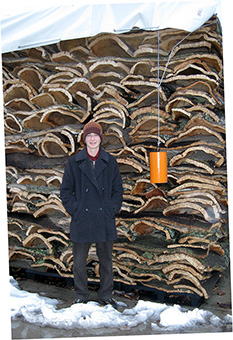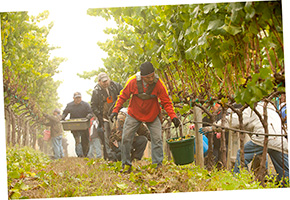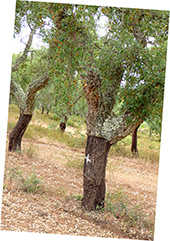The two Chardonnay vineyards that produced most of the grapes for this wine are some of the oldest in Anderson Valley. Our neighbor, Valley Foothills Vineyard, is responsible for almost two thirds of this cuvée produced from their
K2 block planted in 1978. Most of the balance is from the oldest section of Navarro's
Hammer Olsen Block planted in 1983. Both fields were planted using budwood purchased from the
Robert Young vineyard in Sonoma. The Robert Young "clone" was the Chardonnay budwood of choice in the North Coast during this era because the tiny berries delivered excellent quality wine. In reality, the Robert Young "clone" was a field selection until UC Davis cleaned up the budwood and released it later as FPMS clone 17R. Phylloxera and age have reduced production significantly, so these fields are scheduled for replanting in 2016 & 2017. The grapes were destemmed, pressed and the juice transferred to stainless steel tanks to ferment in temperature controlled conditions as individual lots.

![[above]](/images/buttons/arrow_up.gif) Sarah standing next to planks of cork drying.
Sarah standing next to planks of cork drying.
Harvesting Navarros Hammer Olsen
Chardonnay vineyard on a cold, foggy morning. ![[below]](/images/buttons/arrow_down.gif)

After fermentation the wine was racked to seasoned French oak barrels to age eight months. A cuvée from the various barrels was selected, including an eleven percent addition of wine we had produced from Potter Valley grapes. The wine exhibits a classic
Mendocino Chardonnay profile of pear, apple and citrus combined with suggestions of vanilla, toast and spice from the seasoned oak barrels. It's rare to find a Chardonnay in this price range made from premium clones and bottled with a real cork finish rather than a screw cap.
Gold Medal winner.
 Cork trees with the cork bark removed.
Cork trees with the cork bark removed. ![[right]](/images/buttons/arrow_right.gif)
Once an oak tree trunk has grown to about two feet in diameter, the cork is stripped off every nine or ten years. Cork is sustainable as the trees are not sacrificed but continue to live after the harvests. The cork forests in southern Europe provide sanctuary for a third of Europe's bird population making this sustainable product ecologically important. Cork is desirable for wine closures because, like oak casks, they allow oxygen to interact with the wine for proper aging.

